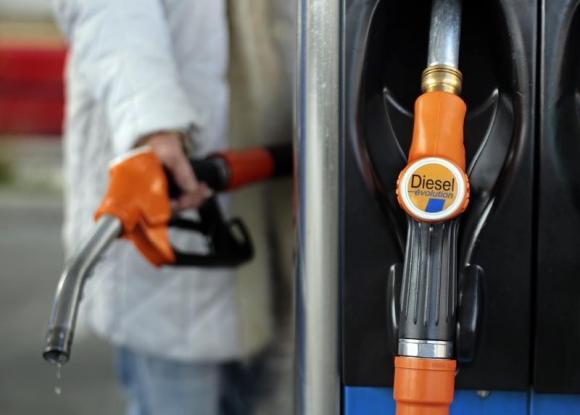Labour’s drive to encourage diesel cars was “wrong” and a “massive problem for public health”, the shadow environment minister has admitted. Although diesel cars have fewer carbon emissions they churn out much higher levels of air pollutants that some believe to be responsible for up to 29,000 deaths a year.
Last year, more than half of the new cars bought in Britain were diesel models, the Independent has reported. Ten million Britons are currently driving diesel cars, despite the fuel being more expensive at the pump, thanks in part to tax-break policies enacted by Gordon Brown when he was Labour’s Chancellor of the Exchequer.
The policies were inspired by a desire to cut carbon emissions – diesel cars have lower CO2 emissions than petrol models – but diesel cars emit higher amounts of pollutants, including nitrogen dioxide gas which has been known to cause heart disease, strokes, diabetes, and can damage lung tissue and blood vessels. They also emit 22 times the amount of sooty particulate matter, which has been linked to cancer and blamed for thousands of early deaths in the UK each year.
Speaking in a Dispatches documentary due to be broadcast tomorrow night, Barry Gardiner MP, Shadow Minister for the Environment, said: “Hands up, can I say there’s absolutely no question that the decision we took was the wrong decision, but and it is a big but, at that time we didn’t have the evidence that subsequently we did have and we had cleaner diesel engines, which we thought meant that any potential problem was a lower grade problem than the problem we were trying to solve of CO2.”
He claims that pushing diesel cars was the “right move away from those vehicles who were pushing out CO2 emissions”, but admits “Certainly the impact of that decision has been a massive problem for public health in this country.”
He also tried to deflect the blame onto the current government, saying “The real tragedy is after we set up the committee on the medical effects of air pollution and it reported back in 2010 we’ve had five years that this government has done nothing about it.”
However, according to Professor Roy Harrison, professor of environmental health at Birmingham University, academics had been warning about the problem for over 20 years, giving the Labour government ample time to do something about it themselves.
“I chaired an advisory committee in 1993 who was advising government on urban air quality issues and we recognized that there might be future problems associated with the increasing uptake of diesel passenger cars,” he said.
Alan Andrews, who is a lawyer for ClientEarth, said: “I think people have been conned to some extent. People still think diesel is the green fuel and buying a diesel car they are doing the right thing by the planet. The truth is diesel is a very heavily pollutant fuel certainly from a public health point of view we can’t have dirty diesels in our towns and cities.”
The latest government report on air quality shows that legal limits for nitrogen dioxide are being exceeded in 40 of Britain’s 43 urban zones. Unsurprisingly, London boroughs are now cracking down on diesel cars in the city, meaning that people who have paid out large sums for an expensive diesel model in order to take advantage of climate change inspired tax breaks will now be hit by a policy reversal.
In Islington, for example, the local council had been been busy promoting a shift to diesel cars since 1997 with its emission-based parking system. Now, diesel owners will have to cough up an extra £97 a year.
Likewise diesel drivers in Camden and in Kensington and Chelsea are already paying up to £18 extra a year for older diesel models, and Mayor Boris Johnson has floated plans to raise the congestion charge for diesel cars by £10.
The British car industry is understandably dismayed at the change of tack from politicians, and at the “blanket” clampdown on diesel cars by local authorities. Mike Hawes, the chief executive of the Society of Motor Manufacturers and Traders (SMMT), said: “Blanket policies which fail to distinguish between modern clean [diesel] vehicles and decades-old technologies are not the solution.
“The decision to impose new financial penalties on diesel owners who bought their cars in good faith is unreasonable and demonstrates a concerning lack of understanding about the huge technological advances that are already making diesel vehicles cleaner.”
And a source close to Ford, which has just opened a new £190 million diesel engine plant at Dagenham said the industry viewed the new policies as the start of a “demonisation of diesel”.
In a statement, a government spokesperson said: “This government has invested heavily in measures to help tackle the issue of air quality, committing £2 billion since 2010 to increase ultra-low emission vehicles, sustainable travel and green transport schemes, as well as promoting walking and cycling. We are working with businesses and the public health sector to promote understanding and encourage action to further reduce exposure.”
This is not the first time that policies designed to tackle climate change have backfired spectacularly. Last week, Brietbart London listed 10 ways in which policies designed to save the earth from CO2 were in fact spreading poverty, persecution, and death.

COMMENTS
Please let us know if you're having issues with commenting.